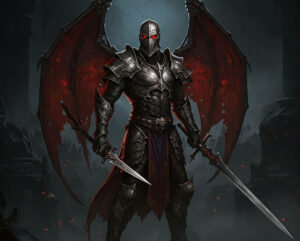Watch Dogs: Legion is the third installment in the critically acclaimed Watch Dogs series, developed by Ubisoft Toronto. Set in a near-future dystopian London, the game invites players to explore an open-world environment teeming with life and activity. The premise revolves around a struggle against an authoritarian regime that has taken control of the city, leading to widespread oppression. Players step into the shoes of a hacker group known as DedSec, whose objective is to restore freedom to the people of London. The game is not only a showcase of technological advancements but also a commentary on contemporary issues surrounding surveillance, privacy, and civil liberties.
One of the standout gameplay mechanics in Watch Dogs: Legion is the ability to recruit and control virtually any character that players encounter in the game. This recruitment system allows for a diverse range of characters to be utilized as players navigate through the urban landscape. From former spies and street artists to construction workers and corporate managers, each character comes with unique skills and backgrounds that contribute to the gameplay experience. This mechanic encourages players to think strategically about which characters to recruit, each of whom adds a distinct flavor to the missions and challenges presented within the game.
The city of London is brought to life with remarkable detail, and players can engage in a myriad of activities alongside the main storyline. The dynamic open-world design enables exploration and engagement with various side missions that further enhance the experience. Themes of rebellion against oppression are woven throughout the narrative, encouraging players to reflect on issues of power and resistance. Ultimately, Watch Dogs: Legion not only delivers an entertaining gaming experience but also provokes thought regarding societal structures and the role of technology in our lives.
Innovative Gameplay Mechanics
Watch Dogs: Legion introduces a groundbreaking approach to gameplay that significantly differentiates it from its predecessors. Central to this innovation is the ‘Play as Anyone’ feature, a distinctive mechanic allowing players to recruit and control virtually any character found within the game’s expansive open world. This element not only enhances the narrative depth but also enriches the overall gameplay experience, as players can engage with a diverse cast ranging from street artists to retired spies. Each character possesses unique skills and traits that can be strategically utilized during missions.
This diversity enables players to tailor their approach to various scenarios, paving the way for a more personalized gaming experience. For instance, a character skilled in hacking may excel in missions requiring the manipulation of security cameras, while a combat-focused individual might be better suited for more confrontational tasks. This versatility encourages players to experiment with different character combinations, leading to varied gameplay styles and strategies. By allowing players to switch between characters seamlessly, Watch Dogs: Legion fosters a dynamic interaction with the game world, placing strategic decision-making at the forefront.
Furthermore, the focus on character diversity extends beyond gameplay mechanics; it enhances the story and world-building as well. Each character comes with their own backstory, motivations, and connections, contributing to a rich tapestry that immerses players in the game’s portrayal of a dystopian London. As players explore the city, they are not just engaging in missions but also discovering the lives and experiences of the myriad individuals they interact with. This innovative gameplay mechanic enhances player agency and narrative engagement, making Watch Dogs: Legion a standout title in the gaming landscape.
Narrative and World-Building
Watch Dogs: Legion presents a compelling narrative that intertwines themes of freedom, resistance, and the implications of cyber warfare within a richly realized post-Brexit London. The game builds its world through a combination of main story arcs and various side missions, each contributing to a broader commentary on surveillance, autonomy, and societal fragmentation in a contemporary urban landscape. The choice to set the game in London—a city marked by its historical significance, cultural diversity, and socio-political strife—provides an evocative backdrop for its exploration of these urgent themes.
The main storyline follows a group of resistance fighters, organized under the banner of DedSec, who are determined to liberate the city from the clutches of authoritarian control and corporate greed. As players navigate through a variety of missions, they encounter an array of characters, each with unique skills and backstories, which highlights the narrative’s core concept: the power of collective action. The game’s innovative “Play as Anyone” mechanic allows gamers to recruit any NPC in the world, thus underscoring the importance of diversity and collaboration in overcoming oppressive systems.
Side missions further enrich the narrative by delving into individuals’ struggles within this dystopian reality, allowing players to witness the human cost of technological advancement and the societal implications of a surveillance state. Each mission is carefully crafted to reflect the game’s themes, drawing attention to the ethical dilemmas posed by digital monitoring and data privacy. Through these interconnected missions, Watch Dogs: Legion not only tells a story of rebellion but also serves as a critique of contemporary societal issues, encouraging players to reflect on their real-world counterparts.
Graphics and Sound Design
The visual appeal of Watch Dogs: Legion is a significant aspect that contributes to its immersive gaming experience. Set in a meticulously crafted version of London, the game’s graphical fidelity is commendable. The developers have employed advanced rendering techniques to bring the city to life, creating a believable environment where players can engage with various elements. From well-known landmarks to the bustling streets, the attention to detail enhances the realism. Character models are similarly impressive, with a wide variety of NPCs, each displaying unique features and animations. This diversity not only enriches the gameplay but also reinforces the game’s core mechanic of recruiting anyone in the game world.
The overall aesthetic appeal of Watch Dogs: Legion is further elevated by an effective color palette and lighting system that adapts to different times of the day and weather conditions. Shadows cast dynamically across the cityscape create a more realistic atmosphere. Complementing this visual excellence is the sound design, which plays a crucial role in establishing a rich gaming narrative. The voice acting is notably well-executed, with characters expressing emotions that are reflective of their backgrounds and circumstances. This is vital in helping players forge connections with the diverse cast that they can recruit.
The soundtrack deserves mention as well; it seamlessly blends with the game’s action and themes, effectively enhancing the emotional weight of various scenes. Furthermore, ambient sounds, such as the hum of city life or the distant sirens, contribute to the overall immersion. Together, the graphics and sound design of Watch Dogs: Legion create a cohesive world that is visually stunning and aurally engaging, enhancing the player’s journey through its narrative and gameplay.
Community and Multiplayer Features
In Watch Dogs: Legion, the community and multiplayer features significantly enrich the player experience, creating a sense of belonging and interaction among gaming enthusiasts. Players have the opportunity to dive into engaging co-op missions, which foster teamwork and collaborative gameplay. These missions often require players to strategize together, using each character’s unique abilities effectively to accomplish shared objectives. The game’s design encourages communication and coordination, which are essential for completing complex tasks and enhancing overall immersion.
Moreover, the inclusion of challenges within the multiplayer framework provides an additional layer of competition and camaraderie. Players can partake in various community challenges, which not only test their skills but also allow them to track their progress and achievements against others. This aspect fosters a vibrant competitive spirit and motivates players to refine their gameplay, advancing both personal improvement and community recognition.
Another noteworthy feature is the regular community events hosted within the game. These events introduce limited-time challenges and rewards, incentivizing players to engage with the game periodically. Players can come together to participate in these events, creating a communal atmosphere that enhances social interaction. The integration of leaderboards further amplifies this competitive edge, allowing players to gauge their performance against others globally or within their friend circles.
While the online functionalities of Watch Dogs: Legion provide numerous benefits, they are not without their drawbacks. Certain technical issues, such as connection stability and matchmaking delays, can hinder the enjoyment of multiplayer features. However, the developers remain committed to addressing these problems, suggesting that the community’s feedback plays a crucial role in shaping future improvements. Overall, the community and multiplayer components enrich the Watch Dogs: Legion experience, making it a more dynamic and engaging title within the action-adventure genre.
Technical Issues and Criticisms
Upon its release, Watch Dogs: Legion attracted considerable attention, but it was not without its technical issues and criticisms. Players reported a variety of bugs that hampered their gaming experience. Common problems included graphical glitches, frame rate drops, and inconsistent AI behavior, which detracted from the overall immersion that the developers aimed to achieve. These performance issues were especially pronounced on older console models, leading to a less favorable gameplay experience.
Moreover, players expressed dissatisfaction with some of the game mechanics. The much-touted “Play as Anyone” feature, while innovative, often resulted in frustrations due to the varied abilities and skill gaps among the numerous NPCs that players could recruit. Feedback indicated that players frequently encountered AI allies behaving erratically, which not only complicated missions but also led to moments that felt unintentional and unpolished. Such inconsistencies in AI behavior significantly impacted overall player engagement, as well as the strategic elements the game sought to incorporate.
Review scores reflected this mixed reception. While some critics praised the ambitious scope and narrative themes of Watch Dogs: Legion, many noted that the game fell short due to its technical shortcomings. Players took to forums and social media to voice their concerns, emphasizing that, despite the rich world-building and engaging storyline, the technical issues undermined the potential success of the game. This feedback prompted the developers to release several patches aimed at addressing the bugs and improving performance. However, the initial backlash highlighted the challenges that arise when launching an ambitious open-world game in a highly competitive market.
Player Experience and Community Feedback
Watch Dogs: Legion has generated a plethora of community feedback since its release, with players sharing their experiences across various platforms. Many players have praised the unique premise of the game, which allows them to recruit and control multiple characters, each with their own skills and backgrounds. This feature has been highlighted as a significant innovation that deepens player engagement. One Reddit user remarked on the enjoyment derived from experimenting with different character abilities, stating that it brought a refreshing approach to gameplay compared to previous installments in the franchise.
However, not all feedback has been positive. Some players have voiced concerns regarding the game’s narrative coherence. A common sentiment expressed in community discussions is that, while the gameplay mechanics are enjoyable, the story lacks the depth and emotional impact found in earlier entries. Reviews from gaming websites echo this sentiment, noting that the plot feels disjointed at times, which can detract from the overall experience. Players have also mentioned technical issues, including bugs and performance lags, that hinder immersion.
Social media reactions further illustrate this complex player experience. On Twitter, hashtags such as #WatchDogsLegionFeedback have flooded timelines with players recounting their gameplay stories, highlighting both memorable moments and frustrating glitches. Forums dedicated to the game host extensive discussions where players collectively brainstorm solutions to common issues, alongside sharing tips for maximizing enjoyment. Despite the mixed feelings, the community remains active and engaged, collectively expressing hope for patches and updates that could enhance gameplay stability as well as narrative depth.
In conclusion, the player experience in Watch Dogs: Legion presents a multifaceted perspective, bridging enjoyment of innovative gameplay mechanics with requests for improvements in narrative and technical performance. The ongoing dialogue within the community showcases a commitment to enhancing their collective experience with the game.
Comparative Analysis with Previous Installments
Watch Dogs: Legion marks a significant evolution in the franchise, particularly when compared to its predecessors, Watch Dogs and Watch Dogs 2. This installment introduces a distinct gameplay mechanic that sets it apart; players can recruit and control any NPC in the game world, providing a sense of agency that was only hinted at in earlier titles. In Watch Dogs and Watch Dogs 2, players predominantly controlled a single protagonist, Aiden Pearce and Marcus Holloway, respectively. The ability to embody diverse characters not only enhances player engagement but also adds layers of strategy and complexity to gameplay.
Narratively, Watch Dogs: Legion takes a bolder approach by placing the entire city of London in the spotlight as a character in itself, with a backdrop of impending chaos due to societal upheaval. This contrasts with the individual-centric narratives of its predecessors. While Watch Dogs focused on a personal vendetta intertwined with themes of surveillance and privacy in a technologically driven society, and Watch Dogs 2 delved into social activism and hacker culture, Legion compiles these concepts into a collective struggle for freedom against an oppressive regime. This shift reflects the franchise’s growth and its responsiveness to the themes of individualism versus collectivism prevalent in contemporary societal discourse.
Furthermore, the design philosophy in Legion emphasizes inclusivity through its diverse character roster, representing various backgrounds and narratives. This contrasts with the more limited archetypes seen in previous titles. The developers have clearly learned from past experiences, understanding that character diversity enriches the storytelling experience and allows players to form deeper connections to the game world. Overall, Watch Dogs: Legion is a testament to the series’ evolution, succeeding in advancing gameplay mechanics and narrative scope while staying true to the franchise’s core themes of technology, surveillance, and resistance. The insights gleaned from Watch Dogs and Watch Dogs 2 substantially shape the future trajectory of the brand.
Future of the Franchise
The future of the Watch Dogs franchise appears promising, especially following the release of Watch Dogs: Legion. The game has introduced innovative mechanics, particularly the ability to recruit and play as almost any NPC in the city, which has significantly reshaped gameplay dynamics. Industry analysts suggest that this fresh approach could lead to various sequels or further iterations that build on similar themes. It remains to be seen how Ubisoft will capitalize on these mechanics in future titles.
The introduction of Downloadable Content (DLC) is likely a significant component of maintaining player engagement. The success of adding new characters, storylines, and missions through DLC packs has been a successful strategy for other franchises, and it is reasonable to anticipate something similar for Watch Dogs: Legion. Offering expansions that explore new settings or enhance the storytelling experience could further engage the community and provide a steady revenue stream for Ubisoft.
Moreover, player feedback plays a vital role in shaping the trajectory of the franchise. Since the launch of Legion, the developers have been actively listening to the player base’s suggestions and critiques. This ongoing dialogue may influence not only the content of upcoming DLC but also the overarching design philosophy for potential sequels. If the players express a desire for specific gameplay enhancements or more depth in character development, these requests will likely impact future iterations. A shift in player expectations, alongside trends in the gaming industry, will undoubtedly shape what comes next for Watch Dogs.
In conclusion, while the future of the Watch Dogs franchise is uncertain, it is clear that there are ample opportunities for growth and adaptation, driven by both innovative gameplay features and community interaction.





